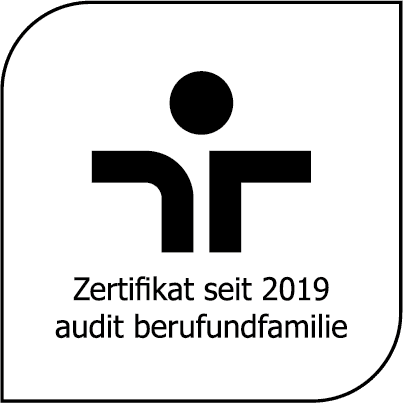Test instruments sorted
Contact person for the Open Test Archive
Gülay Karadere (Dipl.-Psych.)
Research Associate
guek@leibniz-psychology.org
IES-2
Intuitive Eating Scale 2 - deutsche Fassung
Short abstract
The IES-2 is the German translation of the English measure named the same (Tylka & Kroon Van Diest, 2013) and is used as a research instrument to investigate intuitive eating behaviour. It comprises 23 items on a five-step response scale, which are distributed over four subscales: UPE = Unconditional Permission to Eat, EPR = Eating for Physical rather than Emotional Reasons, RHSC = Reliance on Internal Hunger and Satiety Cues, B-FCC = Body-Food Choice Congruence. Reliability: The internal consistencies were Cronbach's Alpha = .91 for the total value and between Alpha = .72 and Alpha = .90 for the subscales. Overall, women achieved higher alpha coefficients (exception: B-FCC) than men. Validity: The factor structure of the IES-2 was investigated and retained for the subscales due to high charges. The negative correlations with the questionnaire on dietary behaviour (FEV-II), the Eating Disorder Inventory-2 - German version (EDI-2), the Interoceptive Awareness Questionnaire-expanded (IAQ-E) as well as the State Trait Anxiety Inventory - Trait version (STAI-Trait) act as evidence for the divergent validity. The age in men correlated weakly negatively with the IES-2 (r = -.12-.01). The IES-2 correlated negatively with the body mass index, whereby the values were neither very high for women nor for men. Other significant differences were found between healthy and clinical participants and within the facets of eating disorders.
Leibniz Institute for Psychology (ZPID). (2019). Open Test Archive: IES-2. Intuitive Eating Scale 2 - deutsche Fassung. Available at: https://www.testarchiv.eu/en/test/9007448
Citation
Van Dyck, Z., Herbert, B. M., Happ, C., Kleveman, G. V., & Vögele, C. (2019). IES-2. Deutsche Version der Intuitive Eating Scale 2 [Verfahrensdokumentation und Fragebogen]. In Leibniz-Institut für Psychologie (ZPID) (Hrsg.), Open Test Archive. Trier: ZPID.
https://doi.org/10.23668/psycharchives.15941
Short information
Short Name IES-2
English Name Intuitive Eating Scale 2 - German version
Authors Van Dyck, Z., Herbert, B. M., Happ, C., Kleveman, G. V., Vögele, C.
Published in Test archive 2019
Copyright/Licence Copyright Authors; CC BY-NC-ND 4.0
Language versions deu
Application age 18 years and older
Item number 23 items
Subscales 1 Unconditional Permission to Eat, 2 Eating for Physical rather than Emotional Reasons, 3 Reliance on Internal Hunger and Satiety Cues, 4 Body-Food Choice Congruence
Application Time ca. 5 nin.
Interpretation time A few minutes.
Internal consistency: Cronbach's Alpha = .91 (total value), Alpha = .72-.90 (subscales).
Findings on factorial and divergent validity; mean differences for the variables age in men, body mass index, healthy vs. clinical participants, and within facets of eating disorder.
None.
Applications Clinical diagnostics, Research
Older versions
Version 1: https://doi.org/10.23668/psycharchives.2464
There is no abstract in English available. Short information about the measure can be found under Overview. More can be found on the German pages.
There is no review in English available. Short information about the measure can be found under Overview. More can be found on the German pages.
First published in
Van Dyck, Z., Herbert, B. M., Happ, C., Kleveman, G. V., & Vögele, C. (2016). German version of the Intuitive Eating Scale: Psychometric evaluation and application to an eating disordered population. Appetite, 105, 798-807. PSYNDEX Dok.-Nr. 0317705
Contact information
PD Dr. Zoé van Dyck, Fakultät für Geisteswissenschaften, Erziehungswissenschaften und Sozialwissenschaften, Universität Luxemburg, Maison des Sciences Humaines 11, Porte des Sciences, L-4366 Esch-sur-Alzette, Luxembourg
Prof. Dr. phil. habil. Beate M. Herbert, University of Applied Sciences Fresenius (München), Professor Biological Psychology & Health Psychology, Clinical Psychology, Campus – Wirtschaft & Medien, Infanteriestraße 11a, D-80797 München
Prof. Dr. Christian Happ, Direktor bei elisabeth am sozialen Dëngscht zu Lëtzebuerg, 22, bd Joseph II, L-1840 Luxembourg, Luxembourg
Prof. Dr. Claus Vögele, Professor für Gesundheitspsychologie, Fakultät für Geisteswissenschaften, Erziehungswissenschaften und Sozialwissenschaften, Universität Luxemburg, Maison des Sciences Humaines 11, Porte des Sciences, L-4366 Esch-sur-Alzette, Luxembourg

 Learn more about us!
Learn more about us! 
